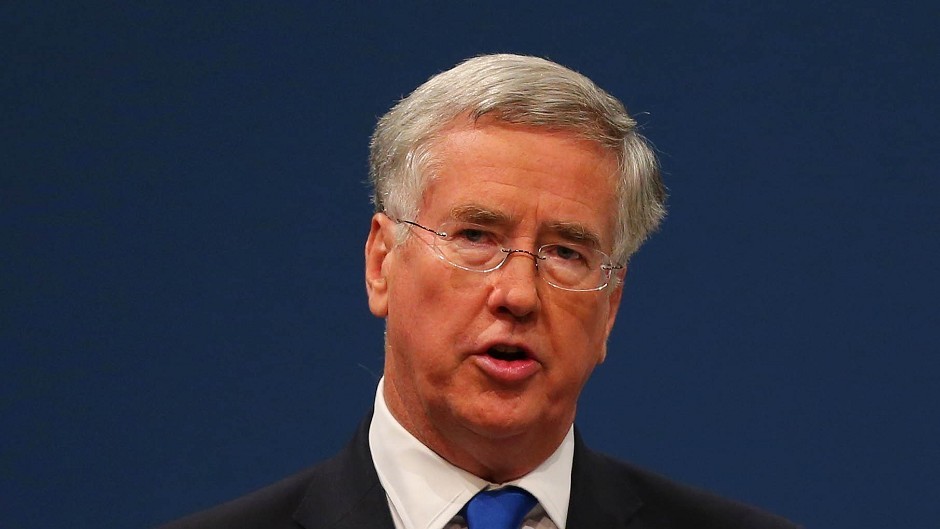The family of a north-east jihadi killed by an RAF drone strike could sue the UK Government after questions were raised over the legality of the attack.
Labour called for the legal advice justifying the move to be published, while the SNP demanded sight of the intelligence which prompted the “extra-judicial killing without trial”.
Abdul Raqib Amin – also known as Ruhul Amin – was not the target of the precision strike.
But the 26-year-old former pupil of St Machar Academy in Aberdeen died alongside Cardiff-born Reyaad Khan on August 21.
Khan and fellow British national Junaid Hussain, killed in an American airstrike a few days later, had been plotting “barbaric” attacks on “high-profile public commemorations” in the UK.
Prime Minister David Cameron described the drone strike as an “act of self defence” when he made a Commons statement on the deaths.
Events presided over by the Queen – including one marking the 70th anniversary of VE Day in June – are understood to have been among the targets, but Downing Street said confirming details could disrupt ongoing prosecutions.
One report claimed Khan, 21, had plotted a Tunisia-style massacre at the VJ Day commemorations in central London.
Yesterday, Defence Secretary Michael Fallon, who authorised the lethal drone strike, insisted it was “perfectly legal” and said he “would not hesitate to do it again”.
He also stressed there was “no other way” of dealing with the terrorists or of preventing the “series” of attacks they were involved in planning.
But an Aberdeen-based expert on international and human rights law said the legality was “open to question”.
Robert Gordon University lecturer Dr Paul Arnell described the strike as an “unusual and dramatic escalation” in the UK Government’s approach.
Previously, he said, people would be brought back to the UK and charged under criminal law.
Justification under international law rests on whether the UK could reasonably be considered under attack, he added.
“It’s certainly a stretch from the traditional concept of self defence where there is an army about to attack you. This is something completely different,” he said.
Asked about the prospect of legal action by the families of the deceased, he confirmed there had been cases where they had sought an investigation on the grounds of Article 2 of the Human Rights Act, the right to life.
“There is a definite possibility of that happening,” he said.
Simon Behrman, an international humanitarian law lecturer at the University of East Anglia, called the legal defence “very, very dodgy”.
“If the UK were engaged in an armed conflict in Syria and the target was an enemy combatant, then it would be legal,” he added.
“But as the UK is not, this does not apply.
“The questions of just how imminent the alleged attack was, and whether there were other means for stopping it, are very vague.”
The unprecedented strike against a UK national was also the first British military action in modern times outside a war zone.
It was approved by the National Security Council “some months ago”, Downing Street said, but went ahead without the prior approval of parliament.
MPs were told Attorney General Jeremy Wright, the government’s chief law officer, had agreed there was a “clear legal basis”.
But his predecessor Dominic Grieve said he expected a challenge in the courts on human rights grounds.
Humza Yousaf, SNP MSP and the Scottish Government’s international development minister, warned the Conservatives had “ridden roughshod” over Parliament’s prohibition of military action in Syria.
“If an action like this is taken, which is incredibly serious, involving the extra-judicial killing without trial of British citizens, then we have to be reassured,” he added.
Meanwhile, the party’s Westminster leader Angus Robertson called for a review of UK drone-strike policy by the parliamentary intelligence and security committee.
Mr Cameron’s official spokeswoman said the attorney general’s advice had already been received by the time of the security council meeting.
But she declined to say whether he was consulted again when the operational decision to strike Khan was taken, adding decisions on future operations would be taken on a “case-by-case” basis.
She also indicated Khan was regarded as continuing to pose an imminent threat even after the events he is said to have been targeting passed without incident.
The move has been widely interpreted as part of a push towards extending the formal UK military action against IS into Syria, with the prime minister believed to be keen to secure parliamentary support for an escalation.
Mr Fallon denied the government had a “hit list”, but senior sources reportedly revealed yesterday that Mohammed Emwazi, known as Jihadi John, is among around 10 self-styled Islamic State fighters targeted for future drone strikes.
